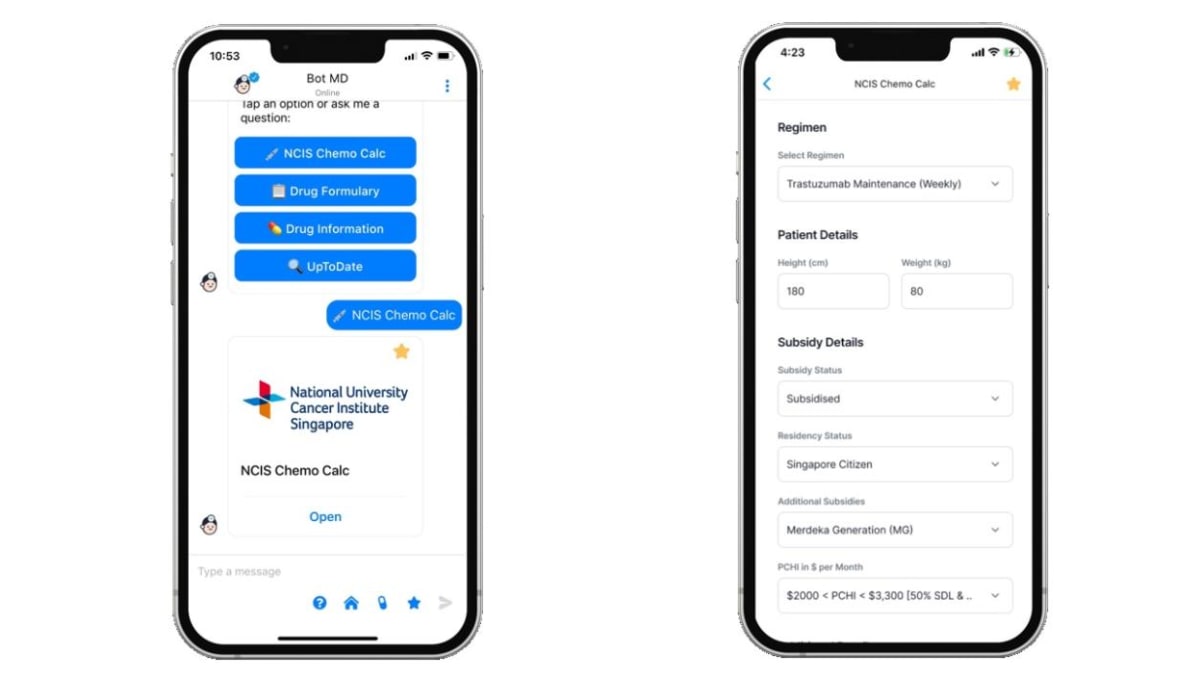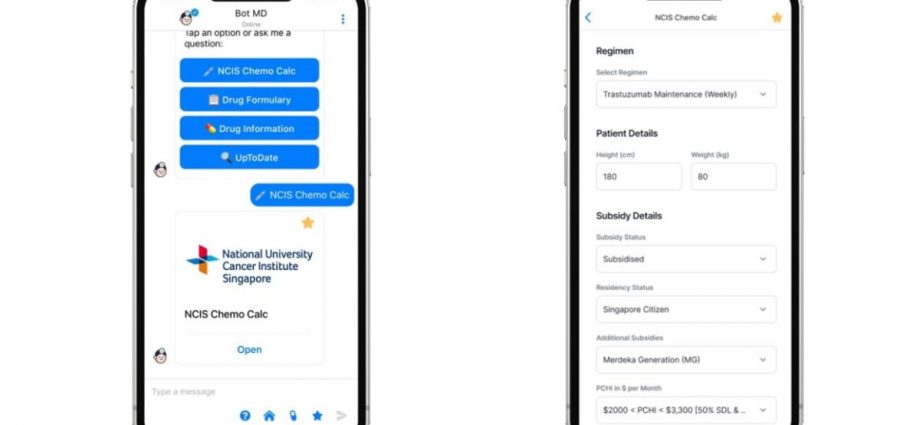
The team said the digital tool was created in light of the Health Ministry’s changes to the MediShield Life (MSHL) reimbursement model, which are set to take effect in September.
It will only cover a positive list of clinically proven and cost-effective cancer drug treatments.
Patients will be able to make claims of between S$200 and S$9,600 per month under a list that will cover 90 per cent of existing cancer drug treatments used in the public sector. An additional S$1,200 will be claimable for services such as scans, blood tests and doctor consultations per year.
“Most cancer treatments are administered in combination with other drugs at patient-specific doses, which can make financial counselling challenging, as manual calculations are required to estimate the cost of cancer treatment,” noted NCIS and BotMD.
“In line with the new MOH policy, out-of-pocket costs for patients will also need to factor in drug and clinical indications to estimate their eligible subsidies and claims.”
As such, the calculator can be customised to meet the specific needs of various healthcare institutions based on how they procure and administer cancer treatments.
This is done by finding the most cost-effective combination of drug strengths to make up a patient-specific dose, and by highlighting to healthcare workers when a generic or biosimilar alternative is available, said NCIS and BotMD.
“Given the increasing complexities of healthcare financing and the fast-growing range of new possibilities in oncology treatments, I believe this tool will be useful not only for the public hospitals but potentially extend to the private hospitals and clinics as well as private insurance companies to help simplify the process of chemotherapy financial counselling in Singapore,” said BotMD’s CEO and co-founder Dorothea Koh.
Ms Alexis Koh, a senior medical social worker at the National University Hospital, said medical costs and treatment affordability are key concerns which can add to patients’ stress and anxiety.
“The ChemoCalc allows patients to know the estimated treatment costs, monthly out-of-pocket expenses and any accorded government subsidies quickly,” she said. “With this knowledge, they can then better plan and mobilise their resources to meet their financial needs.”

